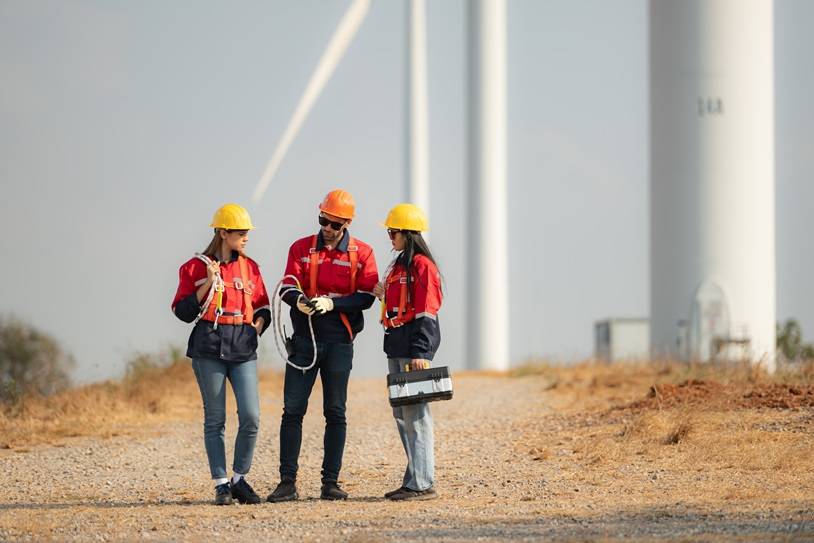Application of artificial intelligence in energy consumption management
 Artificial intelligence in energy consumption management
Artificial intelligence in energy consumption management
The development of artificial intelligence (AI) is affecting many areas of the economy. One of these is the energy sector. AI solutions can be applied at various levels – both by energy producers and consumers. In this text, we will try to answer the question: how can artificial intelligence help to save energy?
The technological developments we have witnessed in recent years make the modern energy industry significantly different from a few decades ago. Through the use of innovative solutions, the energy industry can reduce its carbon footprint, increase the level of investment in RES and overall offer better management of energy consumption. Artificial intelligence comes to the rescue, enabling the next step in saving energy and optimising the operation of the entire grid.
Artificial intelligence for green energy
Experts point out that one potential area of application for artificial intelligence, is appropriate planning for electricity demand. Thanks to its ability to analyse a large amount of diverse data, the use of artificial intelligence may allow for the optimal use of, for example, wind power plants (energy demand analysis combined with weather forecast models) or other renewable energy sources. The result will be greener energy and a reduction, as could happen in the case of Poland, of the share of coal in the energy mix. With the appropriate forecasting models, taking into account the potential demand for energy at particular times of the day, as well as weather forecasts, artificial intelligence could manage energy on a macro scale in such a way that, for example, coal-fired power plants would only be a backup or emergency source of energy production.
Application of artificial intelligence in network design and maintenance
The advantage of AI, however, does not only have to be the management of energy consumption, but also the optimal design of the electricity network, e.g. taking into account where a medium voltage line or a low voltage line should be routed, so that the entire project is functional and takes into account not only current needs, but also the potential development of the network. AI solutions can be useful in this context, especially thanks to their ability to analyse huge amounts of data, which is beyond human capabilities.
Moreover, artificial intelligence is already starting to be used, among others, to maintain, modernize or repair the network. AI can collect data from different periods of time, analyse high voltage lines and identify potential threats or dangers – such as possible damage to overhead power lines by trees. It can also quickly “see” anomalies in the operation of individual system parts, power generation or consumption, and, if necessary, issue early warnings about a possible failure, so as to prevent its occurrence.

Artificial intelligence at the energy micro-scale
Modern energy is characterized by the fact that energy consumption can be optimized at lower and lower levels – even for a single user. This approach is possible, among others, by modern, intelligent modules for controlling energy consumption and storage in home installations using renewable sources. AI solutions, in the context of optimizing energy consumption, are used in many everyday devices, such as smartphones and laptops.
The use of artificial intelligence can also help consumers create and understand their own energy profile, providing information, e.g. about energy demand throughout the day in the household, the level of energy consumption of individual devices, or planning the operation of various devices (e.g. washing machines, dishwashers) in within 24 hours. AI also facilitates the entire energy billing process through the use of smart meters.
Smart Grid as an example of the application of artificial intelligence in the energy industry
One of the buzzwords in the modern energy industry is “Smart Grid”, which means intelligent energy networks. Thanks to the ability to aggregate and analyse huge amounts of data, even on a national scale, the use of Smart Grid may be a solution to the growing demand for energy and difficulties in rapidly increasing its production capacity. By analysing available data, the Smart Grid network could support the process of managing the national grid infrastructure, e.g. by optimizing the use of available resources. In this way, it could facilitate the decentralisation of the energy production and supply system, which would not only translate into a higher level of energy security at the macro level, but could contribute to reducing energy losses by optimising transmission and shortening the path from producer to consumer at the micro level.